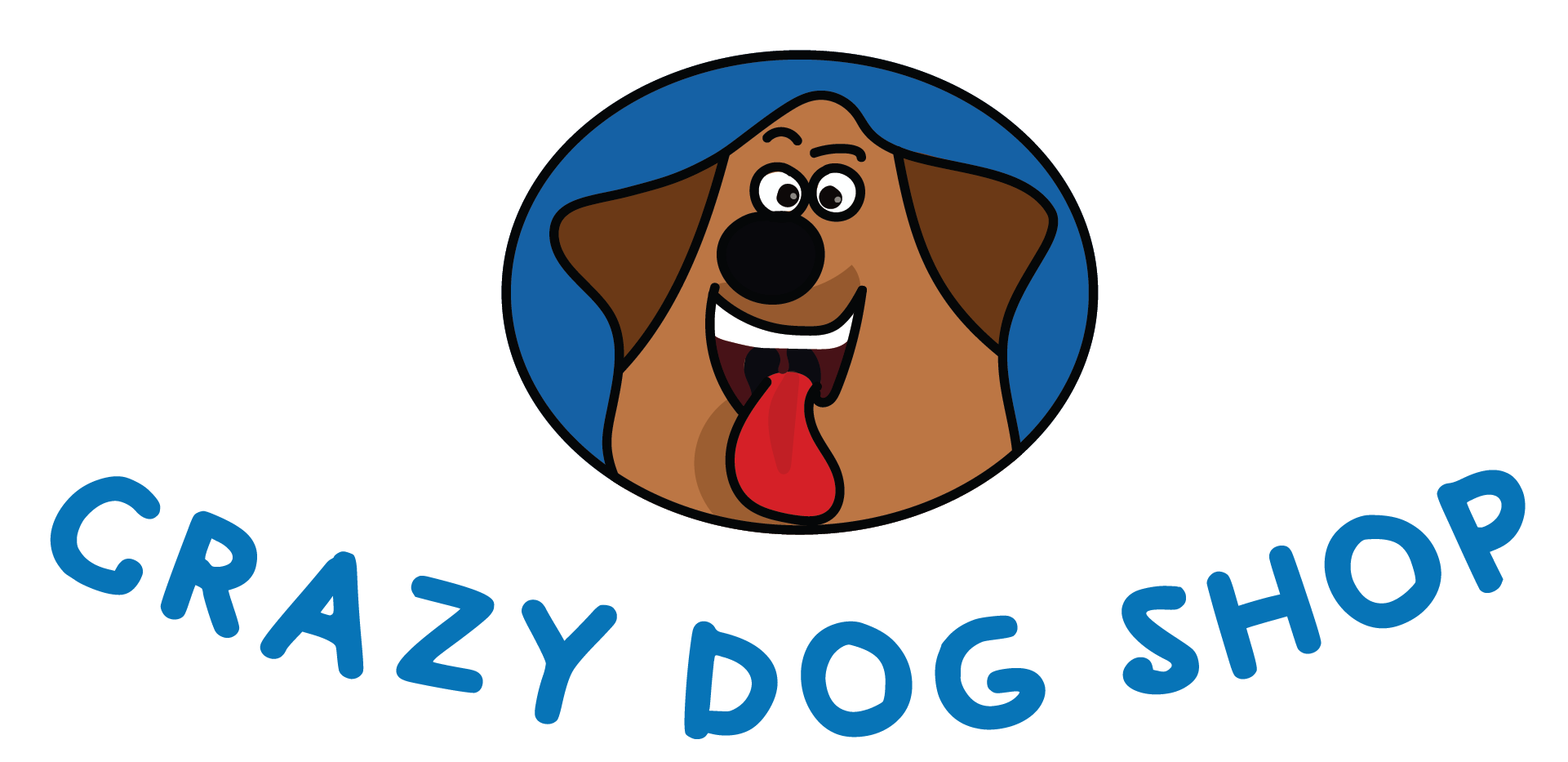Can Dogs Eat Northern Beans? A Guide to Nutritious Canine Diets
Are you looking for ways to enhance your canine companion’s diet with nutritious and wholesome options? Northern beans, often known for their versatility and health benefits in human diets, may also pique your interest as a potential addition to your dog’s meals.
However, before you start incorporating these beans into your pet’s diet, there are several important factors to consider to ensure their health and well-being. So, what exactly are the nutritional benefits and potential risks of feeding northern beans to dogs?
Let’s explore the ins and outs of this topic to help you make informed decisions about your furry friend’s diet.
Key Takeaways
- Northern beans provide several nutritional benefits for dogs, including protein for muscle development, fiber for a healthy digestive system, and essential minerals and vitamins for energy, bone health, and immune support.
- However, there are risks associated with feeding northern beans to dogs, such as potential weight gain, digestive upset, toxicity in raw beans, additives in canned beans, and toxicity in certain types of beans.
- To properly prepare northern beans for dogs, soak and cook them thoroughly without adding salt, spices, or high-fat oils. Start with small amounts to monitor for any digestive upset and consider using bone broth for added flavor and nutrition. Approval from a veterinarian is recommended before introducing beans to a dog’s diet.
- It is important to adhere to recommended portions and frequency of feeding, considering a dog’s daily calorie intake. Only feed Great Northern beans and avoid kidney beans. Consulting a veterinarian, monitoring for allergies or adverse reactions, and incorporating variety in a dog’s diet are also crucial factors to consider.
Northern Beans and Canine Diets
When considering whether northern beans are suitable for your dog’s diet, it’s important to assess their nutritional value and potential impact on canine health. Dogs can eat northern beans as they’re a good source of protein and fiber, which are essential for their overall health. These beans can be beneficial in providing a high-quality plant-based protein for your dog. Additionally, the fiber content in northern beans can aid in maintaining a healthy digestive system for your canine companion.
It’s important to note that raw or uncooked beans can be difficult for dogs to digest, potentially leading to gastrointestinal discomfort. Therefore, it’s recommended to cook the northern beans thoroughly before adding them to your dog’s diet. When prepared properly, these beans can be a nutritious addition to your dog’s meals.
There are different types of northern beans, and it’s important to choose the right ones for your dog. These beans can be a healthy and wholesome option to incorporate into your dog’s diet, providing essential nutrients and promoting overall well-being.
Nutritional Value of Northern Beans
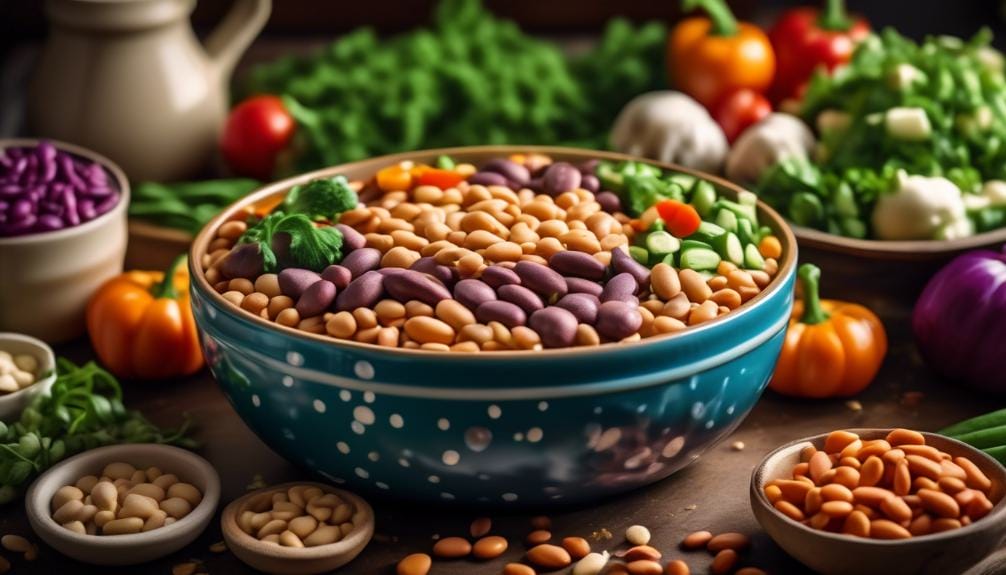
Northern beans are packed with essential nutrients that can benefit your dog’s overall health and well-being. These types of beans are high in fiber, providing a valuable aid to your dog’s digestive system. Great Northern beans are also a good source of protein, which is vital for muscle development and overall strength. They contain iron, potassium, and magnesium, contributing to your dog’s energy levels and supporting bone health.
Additionally, the vitamins A, C, and K found in Northern beans are essential for your dog’s immune system and overall well-being. Antioxidants present in these beans can help in fighting off harmful free radicals in your dog’s body.
When properly prepared and served in moderation, Great Northern beans can be a nutritious addition to your dog’s diet. While they offer numerous health benefits, it’s important to note that raw kidney beans and green beans aren’t suitable for your dog. Always ensure that the beans you offer your dog are thoroughly cooked and free from any seasonings or additives.
Risks of Feeding Northern Beans to Dogs
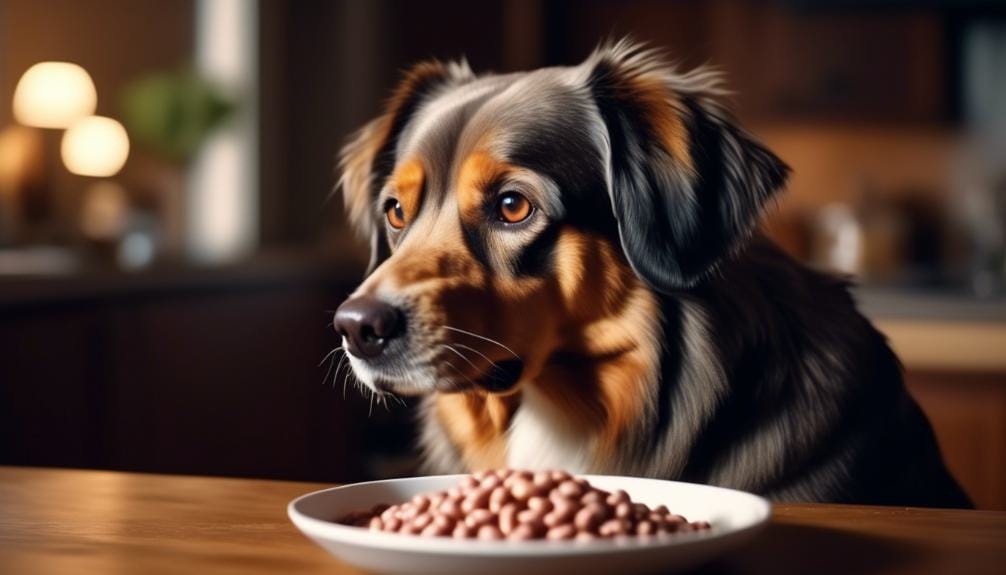
Feeding your dog Northern beans can pose potential risks to their health and well-being. While Northern beans offer health benefits such as being high in protein and fiber, there are several risks associated with including them in your dog’s diet. The table below outlines the potential risks of feeding Northern beans to dogs:
| Risks of Feeding Northern Beans to Dogs |
|---|
| Dogs diet may become high in calories and fat |
| Can lead to digestive upset and upset stomach |
| Raw beans contain lectins, which can be toxic to dogs |
| Canned beans often contain additives and high sodium levels |
| Some beans, like castor beans, refried beans, and fava beans, can be toxic to dogs |
It’s important to be cautious when incorporating Northern beans into your dog’s diet due to the potential for digestive issues, toxicity, and the presence of harmful additives. Always consult with your veterinarian before making any significant changes to your dog’s diet to ensure their health and well-being is prioritized.
Preparing Northern Beans for Dogs
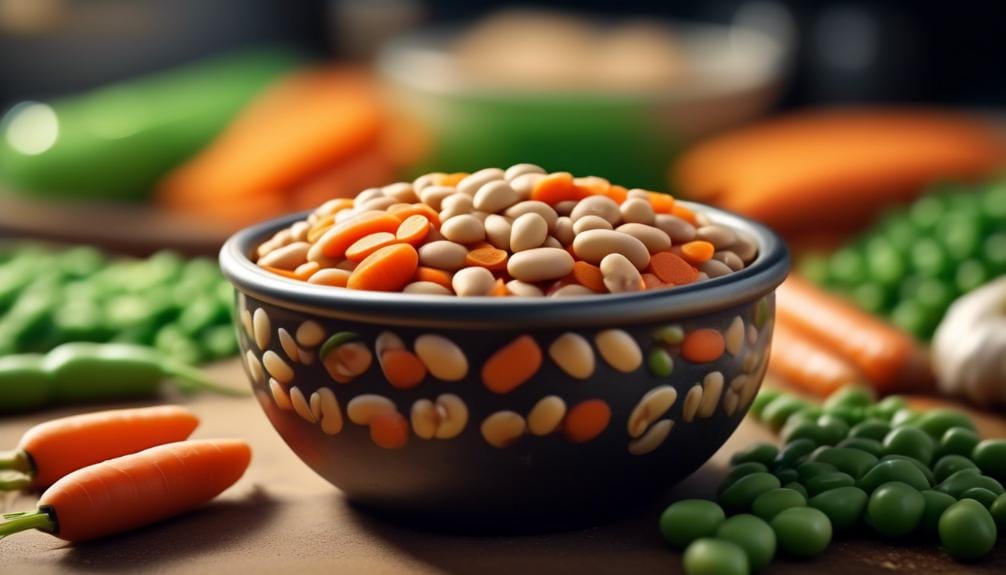
To prepare Northern beans for your dog, ensure you soak and cook them thoroughly before feeding. Start by soaking the beans overnight and then cooking them until they’re soft. This process helps to make the beans safe for your dog to consume.
It’s important to note that you should avoid adding salt, spices, or high-fat oils when preparing Northern beans for your dog. Keep the beans plain and simple to avoid any potential digestive issues.
When introducing Northern beans into your dog’s diet, start with small amounts and monitor for any signs of digestive upset. Additionally, consider using homemade or commercially available bone broth instead of water when cooking the beans for added flavor and nutrition.
However, always seek approval from your veterinarian before incorporating Northern beans into your dog’s diet. By following these steps, you can ensure that the Northern beans are prepared in a way that’s both safe and nutritious for your canine companion.
Recommended Northern Bean Portions for Dogs
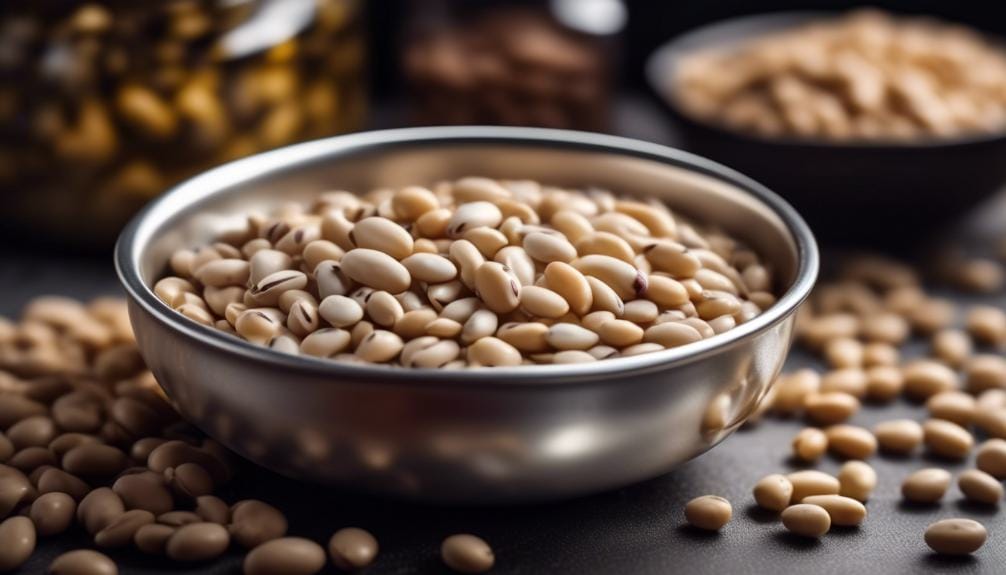
When incorporating Great Northern beans into your dog’s diet, it’s essential to adhere to the recommended feeding amounts and frequency provided by your veterinarian. Great Northern beans can be a healthy addition to your dog’s diet, but moderation is key. These beans are good for dogs due to their low-fat and low-calorie nature, making them a suitable treat when fed in appropriate portions.
When determining the portions, consider your dog’s daily calorie intake and whether beans make up a significant part of their diet. It’s important to make sure that the beans are thoroughly cooked and properly prepared to ensure safe consumption for your furry friend. Keep in mind that kidney beans are toxic to dogs, so it’s crucial to only feed them Great Northern beans and avoid other types.
Remember that dogs can eat soybeans, but always consult your vet before introducing any new food. Overall, Great Northern beans are okay for dogs, and by following the recommended portions, you can provide a nutritious and enjoyable addition to your dog’s diet.
Frequently Asked Questions
Are Northern Beans Safe for Dogs?
Yes, Northern beans are safe for dogs when cooked and prepared properly. They provide protein, fiber, and essential nutrients. Avoid adding salt, onion, garlic, butter, or spices. Always consult your vet before introducing new foods.
What Are the Most Nutritious Beans for Dogs?
For your dog, the most nutritious beans include black beans, lima beans, pinto beans, garbanzo beans (chickpeas), and green beans. They provide fiber, protein, vitamins, and minerals, complementing a well-balanced canine diet.
What Beans Are Not Safe for Dogs?
Avoid feeding your dog raw kidney beans, refried beans high in fat and added ingredients like garlic, baked beans with molasses or brown sugar, chili beans with added sugar and spices, and canned beans with high sodium content.
Why Can’t Dogs Eat Canned Beans?
You can’t feed dogs canned beans because of high sodium, preservatives, and added unhealthy ingredients. These can lead to digestive upset, weight gain, and nutritional imbalance, especially for dogs with heart conditions or high blood pressure. Stick to cooked beans for a healthy canine diet.
Conclusion
In conclusion, while northern beans can be a nutritious addition to a dog’s diet, it’s important to consult with a veterinarian first. They can provide guidance on portion sizes and frequency of feeding to ensure a balanced canine diet.
With proper preparation and portion control, northern beans can be a healthy and tasty treat for your furry friend.
Always prioritize your dog’s health and well-being when introducing new foods into their diet.
